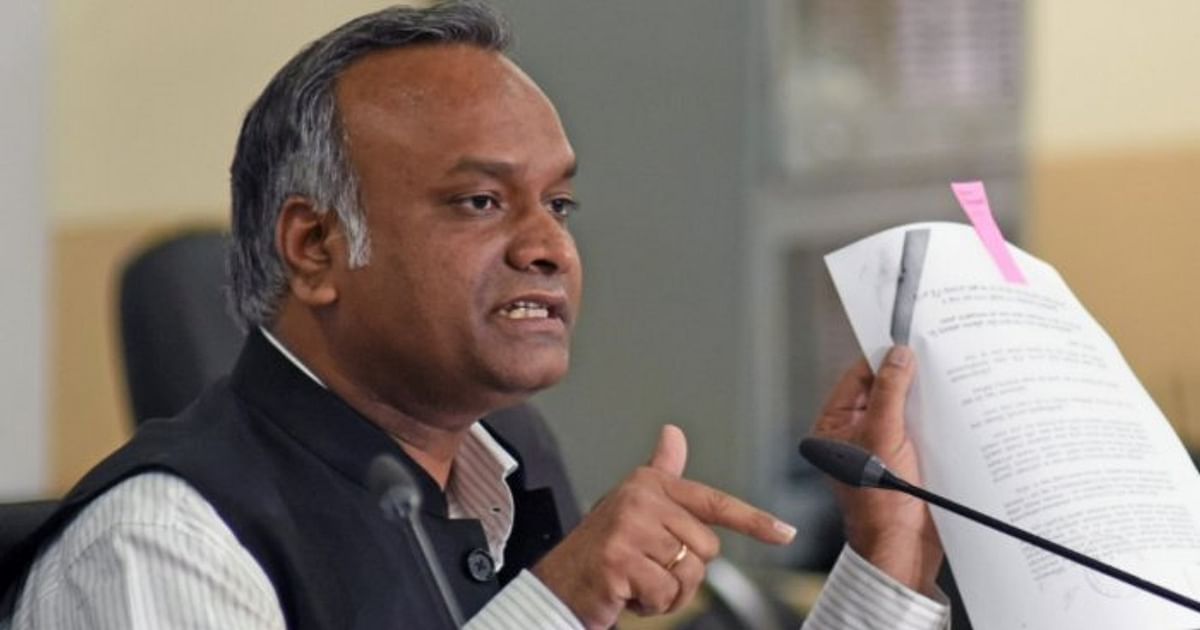
What does the changed Data Protection Bill passed in Parliament entail, and how do we see it in connection with several other legislations passed in the past couple of years? This week's TypeRight takes a look:
Earlier in another chapter of TypeRight we had written about the Data Protection Bill while it was a draft, and later while it was being finalised. Last week, the bill was passed in both houses of the Parliament, although with dissent - and experts have written how the amendments have stripped the bill of everything that the Puttasamy judgement had granted the citizens.
Here, in a piece for The Hindu, Internet Freedom Foundation's Apar has detailed how the act is "a digital leash to yank us and make us stand in line than serve the preambular objectives of the Constitution of India."

Several recent pieces of legislation create databases that fit an authoritarian frame containing the intimate details of Indians and their family units. This includes the Criminal Procedure (Identification) Act, 2022 that has been made into law; as per Project 39A, it creates “database(s) unnecessary while also infringing on the fundamental rights”. More recently, the Registration of Births and Deaths (Amendment) Act, 2023 builds a national database seeded with Aadhaar, which means data sharing literally from cradle to pyre. It is clear from a map of government projects, policies and laws that all things lead to a Data Act as the destination for total state control.
These bills must also be read together with the Telecommunications Act, which replaced the earlier colonial Telegraph Act -
...the government has drafted a new bill, the India Telecommunications Bill 2022, to replace this act that dates back to the colonial times. And where one would think this would have been a great opportunity for a government to change the problematic parts of the act that persist from the British Raj, like incorporating recent judgements on privacy- those in charge have done exactly the opposite.
Now what exactly happens here?
The data protection bill defines privacy in a loose way so that the sharing of a lot of information is now declared problematic as it might be an invasion of privacy. To do this, a clause of the RTI act will also be amended and this definition can be used to prevent people from having access to a lot of data that might be useful to prevent corruption. This is a lot more than two steps back in India's battle for transparency - and this is while activists are demanding the RTI act be stronger and place more safeguards for the people seeking and providing information.

In this article, Nikhil Dey and Aruna Roy of the Mazdoor Kisan Shakti Sanghatan explain:
The new act now ensures that transparency for the sake of democracy will be made harder, while at the same time, the new bills on communication and creation of databases harms the citizens' privacy by building an index that follows people from birth to death. What we had earlier talked about in a TypeRight Chapter, and @digitaldutta has expressed in detail in his article is now even closer to being executed.
The below articles are old but relevant-
The battle ahead for Information activists looks tough, but it is not one that they will back off from - because the movement for social accountability is marching on and gaining grassroots support. "The architecture for this law is similar to the RTI. The objective is to strengthen the robust citizen-centric framework so that such a law could, in a true sense of the term, be RTI Part II; taking us from transparency to accountability to the people, within India’s democracy," says Nikhil Dey of the Mazdoor Kisan Shakti Sanghatan (MKSS), one of the organisations at the forefront of the movement.
Other News
In a previous chapter of TypeRight, we had talked about the circular economy - here, this news explains Karnataka's plan for a new circular economy policy:
Courts take one step forward in going digital throughout the country:

This article from Article-14 serves as a striking reminder as we celebrate 77 years of independence
Updates from Digital Empowerment Foundation
Andrew Garton's book featuring the Digital Empowerment Foundation has also been made into a podcast - listen to all episodes here, or on your favourite player:
In this video, DEF's founder-director Osama Manzar speaks to CNBC on the expansion of digital financial inclusion to the rural areas of India, and more.
Our Smartpur initiative in collaboration with Nokia India is enabling people digitally, and helping generate revenue:



























 might be?](https://sk0.blr1.cdn.digitaloceanspaces.com/sites/1394/posts/714526/dbc8de4c-5c50-411f-aba0-55cfb74a692d.jpeg)

Write a comment ...